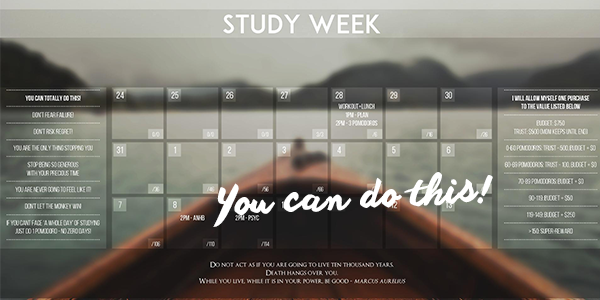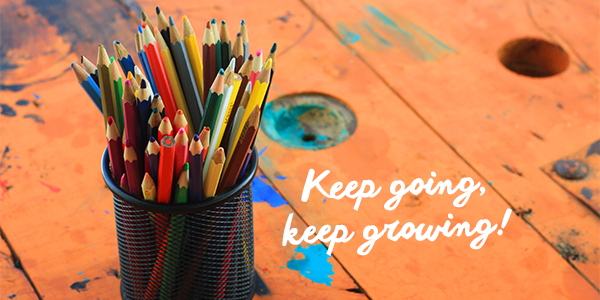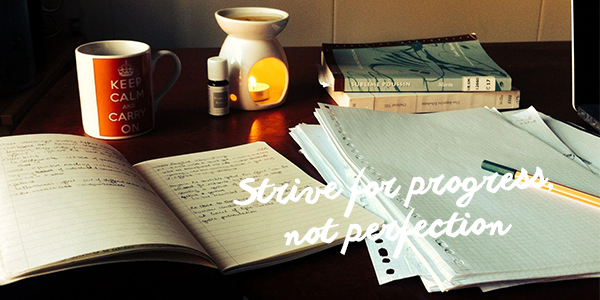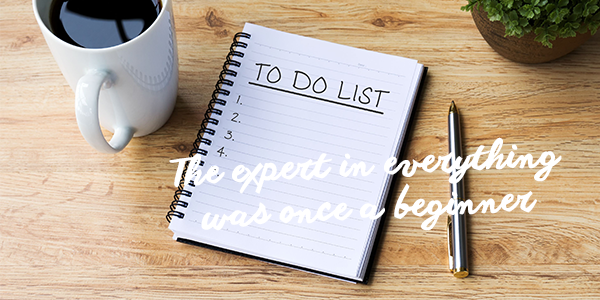
Day 2
Realigning your goal. The lockdown has led to a shift in your learning, having to work online and it may seem unmanageable. Remain focussed on what’s important in your life. This will help you set strong goals and to achieve them. If long-term goal seems too big to achieve, focus on smaller stepping stones that you need to put in place to help you achieve your goals.

Day 3
Take time to pause. If today is a hard day for you and feels difficult, you can pause and use the STOP skills. Emotions often alert us to what is happening and “urges” us to do something. Before you respond, understand the urge so that you respond thoughtfully, rather than react impulsively. STOP or Freeze, TAKE a step back from the situation to gain perspective, OBSERVE the situation, your thoughts & feelings, PROCESS & PROCEED mindfully, acting with awareness to do what is right for you.

Day 4
Structure your day even with online learning. You may have the flexibility for many more breaks, but attempt to get in as much study time as needed; start this by planning out your day and blocking out periods in the day when you intend focussing on academic work. Keep a calendar close by and watch your time so that you can keep to a schedule that helps you deliver on academic timelines.

Day 5
Tech Savvy. This new e-learning adventure is definitely going to try your techno-ability as well as your ability to adapt and deal with the evolving changes. You may require more intricate knowledge and know-how of new programmes and apps. This may produce some anxiety. Don’t be afraid to learn, explore and master new skills. Manage your anxiety well, change your mindset to change your experience. Look at this enforced lockdown as a way to challenge your growth!

Day 6
BackUp. As you will be working on electronic platforms it’s easy for work to get lost, corrupted or deleted; especially with possible power outages, network or hardware failure. Always backup your progress. If needs be, use an external drive as a secondary storage point. Engage with the various academic support programmes and offices – you are not alone in this; these are your backup measures in keeping your academic progress on track!

Day 7
Study Space. Where possible, try to set up a dedicated study space. Even if this is not easy, organise whatever workspace you have, your study material, notebooks, stationery and any other material that aids your learning process. An organised space allows you to work more efficiently, with less disruptions or frustrations that may arise from not having things within easy reach. Once you are done working, pack things away, leaving a clean space for your return.

Day 8
Studying. Everyone would like to be a strong academic learner and a successful student. However, being academically strong and successful also entails overcoming difficulties. Both success and failure are necessary to cope and thrive. So, take a look at how you study and what skills may be more effective for you now in this time of online learning. Identify the strategies that work for you and have a plan to help you work consistently to achieve your goals for your online learning.

Day 9
Read. Stay ahead of the lecture material by reading through your course packs and study material beforehand. If you can, during breaks, continue with some additional reading. Switch material if you find it difficult to focus, develop a healthy habit for reading. When you want to unwind pick up some leisure reading. While relaxing, the reading habit will be reinforced.

Day 10
To-do lists. You are well on your way with online learning by now. Try to start out your day with a to-do list. This means that you would have spent some time planning out your day. Prioritise the work that is most important to you based on your deadlines and the amount of work it entails. Then work on completing tasks as you have listed them. This will require a lot of commitment on your part. It also helps to measure progress and see how effective you have been.

Day 11
Online learning often leads to working at all times and for work to overwhelm us. Our capacity to concentrate on one event over a prolonged period is limited.To focus better, change tasks regularly within the same learning goal. Study breaks are necessary and a valuable part of learning. Take a short walk, do a breathing exercise, connect with someone. A break will help you to recharge and refresh your perspective and ability to concentrate. It may also help you manage your stress levels.

Day 12
Participate. Online classrooms may seem huge and daunting and you may feel intimidated to participate actively. Be yourself, you are unique, with potential, dreams and aspirations as is every other individual. Take responsibility for your own learning; ask, clarify, participate and engage. The more you participate and engage with your work, the more you are going to take from it. Think of what motivates you and where you want to be at the end of your degree!

Day 13
Stay Positive and Motivated. You have the opportunity to have a flexible study routine, make it work for you. Know that there may be some days when you are able to work much more than others; that’s ok – don’t be too hard on yourself but track your progress. Reward yourself for the tasks you accomplish. Stick some motivational quotes in your study space that get you through the tough days.

Day 14
Resilience is the capacity to adapt to situations and overcome obstacles. There has never been a better time to focus on being resilient. Grow resilience by doing some of the following; acknowledge and validate your feelings, become aware of stress triggers and look at ways to manage them, focus on your strengths, maintain good physical health, develop and strengthen positive relationships, set concrete goals, and reach out and ask for help when you need it.


